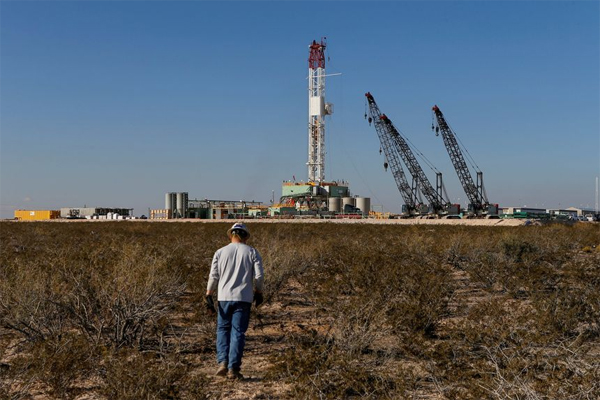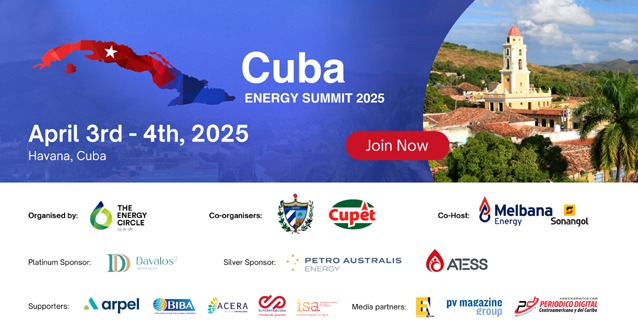The Permian Basin can be the cleanest hydrocarbon source in the world.

By Christopher James
A proper price for oil and gas would allow investors to earn returns on their capital while also accounting for the effect carbon emissions have on the planet. The damage from fossil fuels is real, and suppliers and users alike should share in that cost.OPINION: POTOMAC WATCHHow Ukraine Is Changing the Politics of Energy and Climate Change00:001xSUBSCRIBE
Reliance on gas and oil for our energy needs is unsustainable, both environmentally and geopolitically. We need to align energy use and development of domestic fossil fuels, nuclear power and renewable energy with the broader societal goal of decarbonization. To get there, we need a practical framework for the oil-and-gas sector to approach an energy transition.
The war in Ukraine is a reminder that the global energy system is fragile. Volatile prices are bad for the global economy and indicative of an industry transition that began in the early 2010s. Technological breakthroughs in hydraulic fracturing and horizontal drilling made it possible to extract vast quantities of previously inaccessible hydrocarbons from shale formations. Fracking introduced a new variable into the supply equation: highly flexible but steeply declining wells. Hydrocarbons could be produced quickly to meet short-term demand, but wells depleted rapidly. That gave companies an incentive to rush supply to market before their competitors. Some were slow to dial back spending, and hundreds of billions of dollars of capital were squandered on low returning projects.
The episode taught valuable lessons for the current crisis. The first and most immediate step is to prioritize North American oil production over imports from less desirable suppliers. Permian Basin shale oil can be brought online quickly to substitute for the absence of Russian oil on global markets. Alongside the obvious security and economic benefits to the West, the oil-and-gas industry has the opportunity to ensure the Permian is the cleanest hydrocarbon source in the world. To do this, producers should set aggressive emission-reduction targets and drive methane emissions as close to zero as possible with measuring and monitoring verified by third parti
Further, shale oil and gas production represents arguably the most transition-aligned oil and gas production today. Because of the indeterminate demand for fossil fuels in the coming decades and beyond, it makes economic sense to encourage quick-turnaround, high-return oil-and-gas projects while actively discouraging long-duration, capital-intensive projects with uncertain futures. This is an opportunity for U.S. oil and gas companies to replenish their balance sheets while preparing their own unique strategies to drive value over the coming decade of transition.
The realization that dependence on oil threatens not only the environment but geopolitical stability should spur businesses and consumers to consider the full spectrum of energy sources without ideological bias.
The conflict and suffering in Ukraine shouldn’t be prolonged because of reliance on Russian oil and gas. Our assets in the Permian and other parts of North America should be used now as we continue to move to cleaner and more efficient energy systems. The best path for the energy transition can be the best path for energy security. We don’t want to find ourselves dependent on other countries’ renewable expertise in the next decade.
______________________________________________________
Mr. James is founder and executive chairman of Engine No. 1, an investment firm that in 2021 backed the successful candidacies of three nominees to Exxon’s board. Energiesnet.com does not necessarily share these views.
Editor’s Note: This article was originally published by The Wall Street Journal on March 17, 2022. EnergiesNet.com reproduces this article in the interest of our readers. All comments posted and published on EnergiesNet.com, do not reflect either for or against the opinion expressed in the comment as an endorsement of EnergiesNet.com or Petroleumworld.
Use Notice: This site contains copyrighted material the use of which has not always been specifically authorized by the copyright owner. We are making such material available in our efforts to advance understanding of issues of socially, environmental and humanitarian significance. We believe this constitutes a ‘fair use’ of any such copyrighted material as provided for in section 107 of the US Copyright Law. In accordance with Title 17 U.S.C. Section 107. For more information go to: http://www.law.cornell.edu/uscode/17/107.shtml.
EnergiesNet.com 03 21 2022












